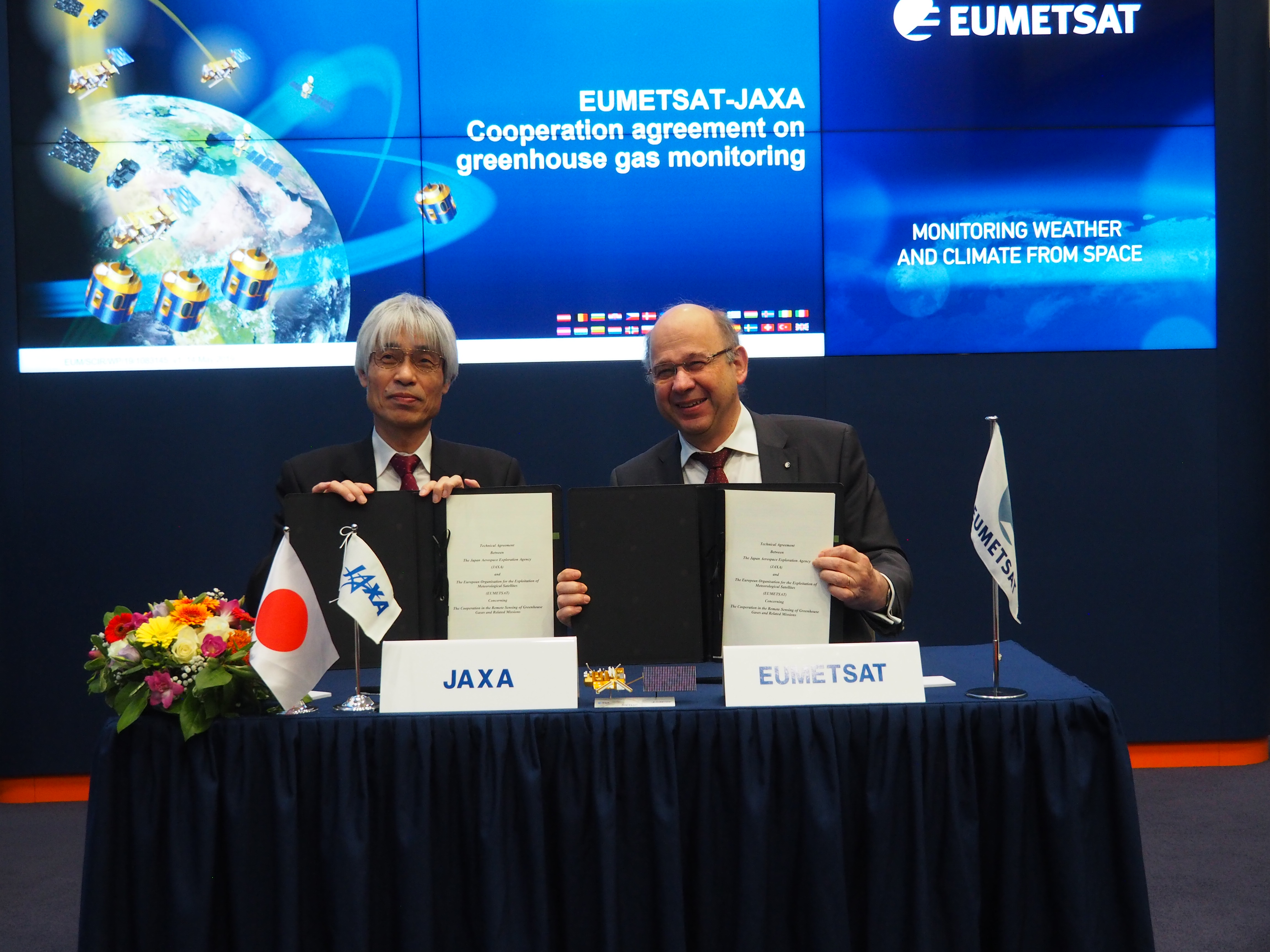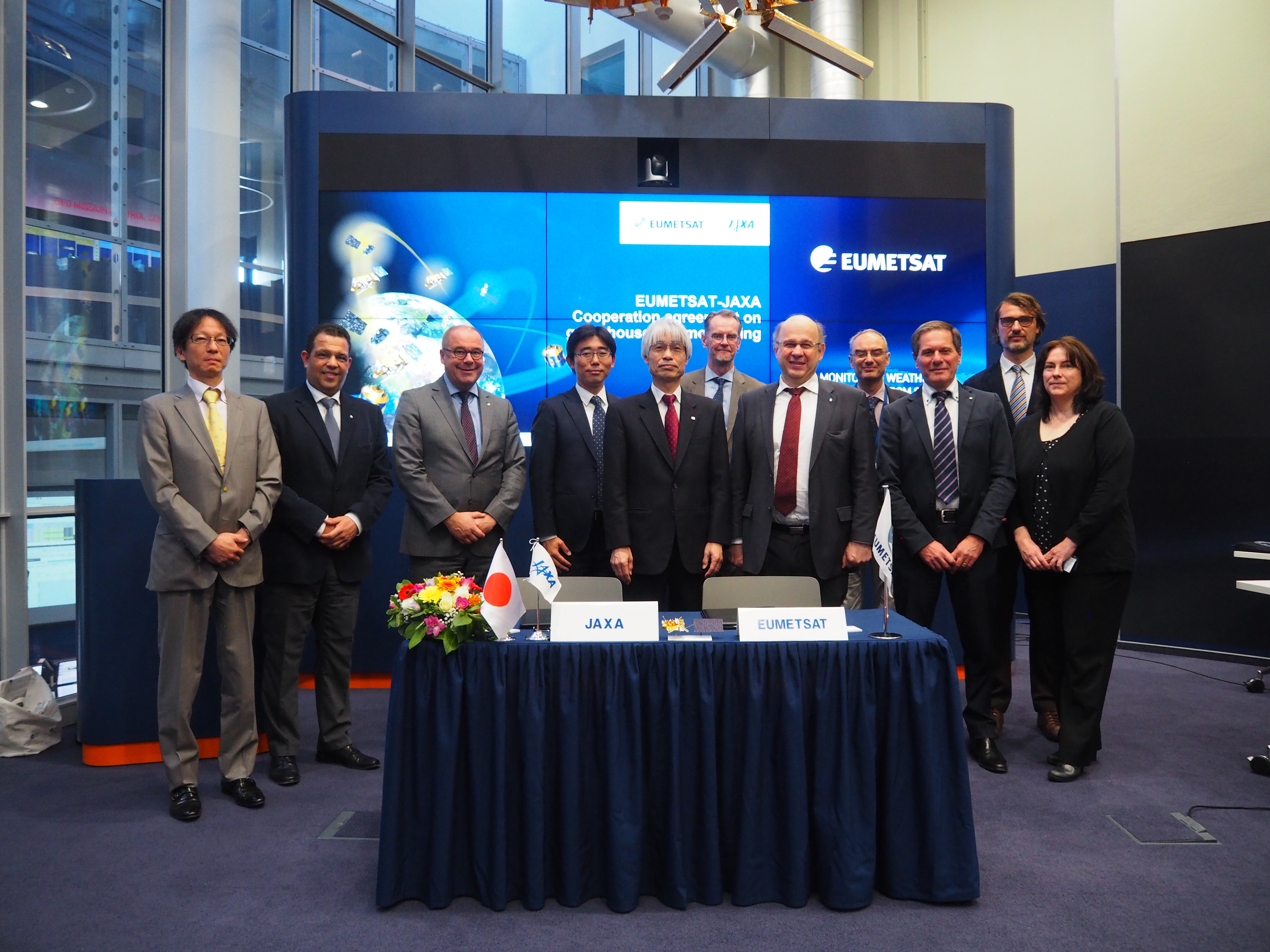
EUMETSAT, Japanese space agency to cooperate on greenhouse gas monitoring


EUMETSAT and the Japan Aerospace Exploration Agency (JAXA) today signed an agreement which will result in the agencies working closely together to monitor greenhouse gases in the Earth’s atmosphere.
05 November 2024
14 May 2019
Mr Kazuo Tachi, on behalf of the Director General of JAXA’s Space Technology Directorate 1 Ryoichi Imai, and EUMETSAT Director-General Alain Ratier signed the agreement at a ceremony at EUMETSAT’s Darmstadt headquarters today.
Japan’s Greenhouse Gases Observing Satellite (GOSAT) was the world’s first satellite mission specifically designed for monitoring greenhouse gases. Instruments on the low-Earth-orbiting satellite measure carbon dioxide and methane for a decade. GOSAT-2 was launched in October as the successor to GOSAT.
“This cooperation with EUMETSAT is crucial to promote the satellite data to support improving national greenhouse gases inventories reports as well as precise understanding of the status of global greenhouse gases,” Tachi said. “JAXA also would like to enhance GOSAT and GOSAT-2 data utilisation in weather forecasting operations through cooperation with EUMETSAT.”
Under the agreement signed today, GOSAT and GOSAT-2 measurements will be calibrated against measurements taken by the Infrared Atmospheric Sounding Interferometer (IASI) on EUMETSAT’s three Metop satellites.
EUMETSAT will make the data from a series of GOSAT satellites operationally available to its users, the EU’s Copernicus Atmosphere Monitoring Service (CAMS), in particular.
“The agreement between EUMETSAT and JAXA will support the implementation of the international part of the agreed European Roadmap Towards an Operational CO2 Monitoring System, which is essential for deepening understanding of climate change,” Ratier said.

About JAXA
The Japan Aerospace Exploration Agency (JAXA) was born through the merger of three institutions, namely the Institute of Space and Astronautical Science (ISAS), the National Aerospace Laboratory of Japan (NAL) and the National Space Development Agency of Japan (NASDA).
It was designated as a core performance agency to support the Japanese government's overall aerospace development and utilisation. JAXA, therefore, can conduct integrated operations from basic research and development, to utilisation.
JAXA became a National Research and Development Agency in April 2015, and took a new step forward to achieve optimal R&D achievements for Japan, according to the government's purpose of establishing a national R&D agency.




